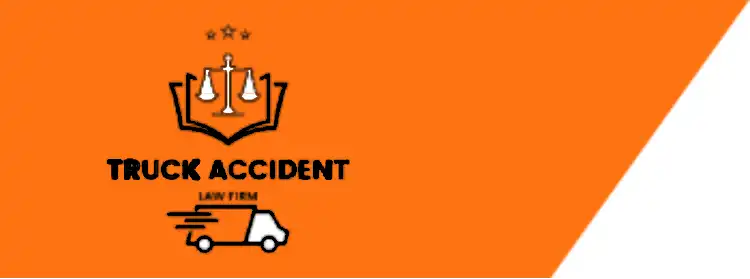Truck accidents are often more complex than regular car accidents. Due to the size and weight of commercial trucks, accidents involving these vehicles can result in devastating injuries and extensive property damage. If you’ve been involved in a truck accident, understanding liability is crucial to determining who should be held accountable for your injuries, medical bills, and other damages.
Truck accident liability can involve several parties, including the truck driver, trucking company, and even manufacturers. In this blog, we’ll explain the key aspects of truck accident liability, what you need to know about proving fault, and how a skilled truck accident attorney can help you navigate the legal process.
1. Key Parties Involved in Truck Accident Liability
One of the unique aspects of truck accident cases is that multiple parties may share responsibility. Here are the key individuals or entities that could be held liable:
A. The Truck Driver
The truck driver is often the first person considered for liability in a truck accident. If the driver was negligent—such as driving under the influence, speeding, or distracted driving—they can be held responsible for the crash.
Common truck driver errors include:
- Driving while fatigued: Truck drivers often work long hours, and fatigue can lead to poor decision-making and slow reaction times.
- Speeding or aggressive driving: Due to tight deadlines, some truck drivers may exceed speed limits or drive recklessly.
- Driving under the influence: If a driver is found to be intoxicated by alcohol or drugs, they can be held fully responsible for the accident.
If the truck driver’s negligence caused the accident, they may be liable for your injuries and damages.
B. The Trucking Company
In many cases, the trucking company that employs the driver may also be liable for the accident. This is known as vicarious liability or respondeat superior, where an employer is responsible for the actions of their employees while they are performing their job duties.
Factors that may lead to trucking company liability:
- Negligent hiring practices: If a trucking company hires an unqualified or improperly trained driver, they can be held responsible for the accident.
- Failure to maintain the vehicle: If the company neglects routine maintenance or fails to fix known issues with the truck, they may be liable for any accidents caused by mechanical failure.
- Pressuring drivers: If the trucking company pressures the driver to meet unreasonable deadlines, this could lead to fatigued driving or other unsafe behaviors.
Trucking companies are obligated to ensure the safety of their drivers and the vehicles they operate, and failure to do so can result in liability.
C. The Manufacturer
Sometimes, a truck accident occurs due to a defect in the truck or its components. In such cases, the manufacturer of the truck, tires, or specific parts may be held liable for the accident.
Examples of manufacturing defects:
- Faulty brakes: If the truck’s braking system fails because of a manufacturing defect, the manufacturer could be held responsible.
- Tire blowouts: If a tire malfunction leads to an accident, the manufacturer of the tire may be liable for the damages.
- Defective truck parts: Issues with engines, lights, or other critical truck components can cause accidents if they were defective when manufactured.
In cases where a mechanical failure or defect is found to be the cause of the accident, the manufacturer may be named in the lawsuit.
D. Maintenance Contractors
Trucking companies often hire third-party contractors to maintain and repair their trucks. If these contractors fail to properly maintain the vehicles, or if they are negligent in their work, they could be held liable for any accidents that result from mechanical failure.
Examples of maintenance-related negligence:
- Failing to inspect the truck properly: If a maintenance contractor fails to check essential components, such as the brakes or steering system, and the truck malfunctions as a result, they could be liable for the accident.
- Improper repairs: If the contractor performs substandard repairs or uses faulty parts, they may share liability for the crash.
When truck maintenance is outsourced, the maintenance company may also be held accountable for the accident if their actions contributed to the crash.
2. Proving Fault in a Truck Accident Case
Determining who is at fault in a truck accident can be a complex process, as multiple parties may be involved. Here are the key steps in proving liability:
A. Gathering Evidence
To prove fault, it’s essential to gather as much evidence as possible. This may include:
- Police reports: These can provide important details about the accident and any citations issued to the driver.
- Witness statements: Eyewitness testimony can provide additional insight into the cause of the accident.
- Driver’s log and hours of service records: If driver fatigue is a factor, these records can show whether the driver was in compliance with federal regulations regarding driving hours.
- Truck inspection and maintenance records: If mechanical failure was a factor, these records can demonstrate whether the truck was properly maintained.
- Black box data: Many trucks are equipped with electronic logging devices (ELDs) that track speed, braking, and other critical data points, which can be crucial for proving fault.
B. Expert Witnesses
In complex truck accident cases, expert witnesses, such as accident reconstructionists or medical professionals, may be necessary to testify about how the accident occurred and the extent of the damages. These experts can help clarify technical details and strengthen your case.
3. Navigating the Legal Process
Truck accident cases are often more challenging than standard car accident claims due to the multiple parties involved and the higher stakes. An experienced truck accident attorney can help you navigate the legal process and ensure that you get the compensation you deserve.
How a truck accident lawyer can help:
- Investigating the accident: Your attorney will thoroughly investigate the incident, gather evidence, and consult with experts to build a strong case.
- Negotiating with insurers: Trucking companies and their insurers often try to minimize their payout. A skilled attorney can negotiate with them to secure a fair settlement or take your case to court if necessary.
- Filing a lawsuit: If a fair settlement cannot be reached, your attorney can help you file a lawsuit and represent you in court.
Having a dedicated attorney on your side will increase your chances of holding the right parties accountable and securing maximum compensation.
4. Compensation You May Be Entitled To
Truck accidents often result in serious injuries and significant financial losses. Compensation in these cases may include:
- Medical expenses: Coverage for hospital bills, surgeries, physical therapy, and other treatments.
- Lost wages: Compensation for time missed from work due to injuries.
- Pain and suffering: Payment for the physical and emotional toll of the accident.
- Property damage: Reimbursement for damage to your motorcycle or personal property.
- Long-term care: If your injuries require ongoing care, you may be entitled to compensation for future medical expenses and rehabilitation.
Conclusion
Truck accident liability can be complex, with multiple parties potentially responsible for the crash. Whether it’s the truck driver, the trucking company, the manufacturer, or a maintenance contractor, understanding who is liable is critical to ensuring you receive the compensation you deserve. By working with a knowledgeable truck accident attorney, you can navigate the legal process and hold the responsible parties accountable for your injuries and damages.
If you’ve been involved in a truck accident, it’s important to seek legal representation as soon as possible to protect your rights and secure the compensation you deserve.

